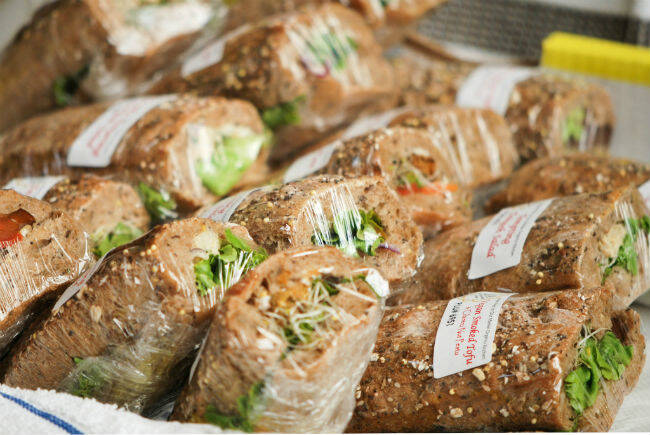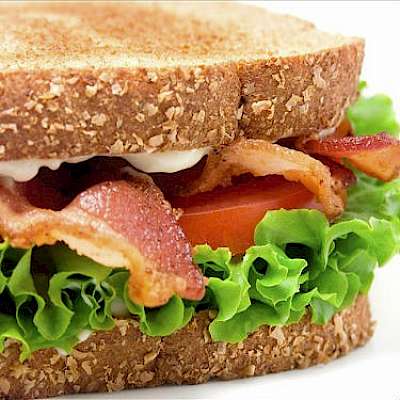In the UK we love sandwiches, they are a hugely popular lunch-time option. But a new study has found our choices have a staggering carbon footprint. What can be done?
A team of researchers at the University of Manchester has looked at the carbon footprint of sandwiches made at home or bought from a shop. According to this study, the 11.5 billion sandwiches we eat each year in the UK generate carbon emissions equivalent to the annual use of 8.6 million cars.
What a sandwich is made of determines its footprint, as agricultural production and processing of the ingredients are the main sources of sandwiches' greenhouse emissions. The researchers looked at 40 different popular varieties of sandwiches and found that sandwiches containing pork meat, cheese or prawns were typically the most carbon-intensive.
Packaging, transport and refrigeration are also important, making ready-made sandwiches considerably less environmentally friendly than home-made sandwiches. The ready-made ‘all-day breakfast’ sandwich, made with sausage, bacon and egg, was found to have the highest carbon footprint of all, with a whopping 1441 grams of CO2 eq., which equates to driving a car for 12 miles. The study included some vegetarian sandwiches with cheese and eggs, and found that he ready-made sandwich with the lowest carbon footprint in the study was the egg mayo and cress with 739 CO2 eq. in total. The researchers did not look at the carbon footprint of any plant-based sandwiches, but we can expect their impact would have been even lower.
What can be done?

Eating Better welcomes this pioneering study and its sound advice to make our sandwich choices more sustainable. The good news is that reducing or avoiding certain sandwich fillings, in particular meat and cheese, can really help make your lunch choices much more environmentally friendly, whether at home and in stores. Choosing plant-based fillings for your sandwiches can also be better for your health. The government's official healthy eating advice, the Eatwell Guide, recommends eating more vegetables and pulses for a healthy balanced diet. On top of choosing plant-based fillings, you can further reduce the impact of your sandwich by making it at home, as that could cut the carbon emissions by half compared to buying a ready-made equivalent.
Yet, while making a home-made sandwich with lots of tasty pulses and vegetables might be the best option for our health and the planet, it's worth noting that half of the sandwiches consumed each year in the UK are ready-made. This means it is essential for the sandwich industry to offer more sustainable lunch-time options for people. In practice, this means increasing the range of delicious plant-based sandwich options on offer, and making them available at a wider variety of stores.
In the context of making our diets more sustainable, at Eating Better we have long argued that going meat-free a lunch-time is a workable strategy for people trying to eat less meat. Our #meatfreelunch campaign has been encouraging people to try out new options at lunchtime, and food businesses to become more attuned with changing food habits and provide products that support flexitarian ways of eating.
There have been encouraging signs of companies leading the way in offering a better range of options for their customers, but progress is patchy and many customers are still being let down by the limited range of plant-based choices available. Our 2016 Sandwiches Unwrapped survey showed that only 17 out of 535 sandwiches (4%) were plant-based. Several food businesses have recently publicised they have increased their vegetarian and plant-based ranges, but is this really translating into a better variety of sustainable choices? At Eating Better we continue to benchmark progress in the food industry towards providing products that support more sustainable food choices, so watch this space!
Images, some rights reserved:
Sammie by Steven Groves (CC BY 2.0)
Veg sandwiches by Zhu (CC BY-NC 2.0)
